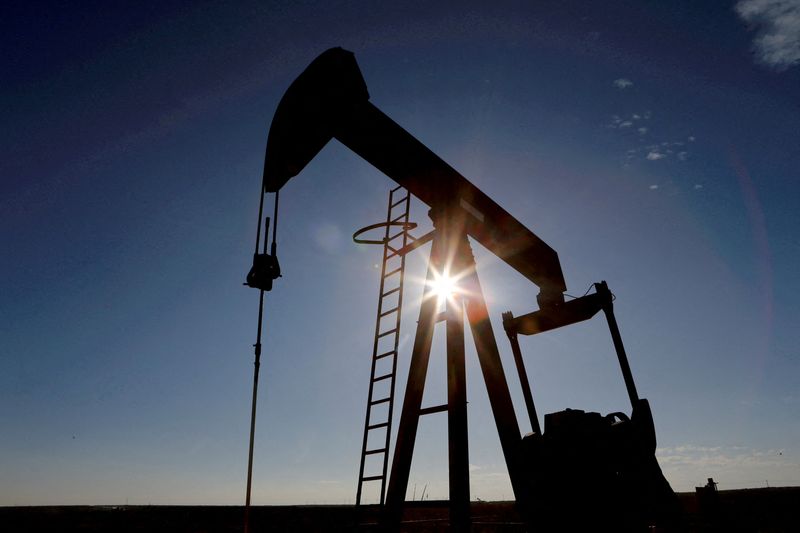By Sonali Paul
MELBOURNE (Reuters) - Oil prices took a breather on Wednesday after surging to seven-year highs in the previous session as it became clear the first wave of U.S. and European sanctions on Russia for sending troops into eastern Ukraine would not disrupt oil supply.
At the same time, the potential return of more Iranian crude to the market, with Tehran and world powers close to reviving a nuclear agreement, also kept a lid on prices, which hit seven-year highs in the previous session.
Brent crude fell 13 cents, or 0.1%, to $96.71 a barrel at 0142 GMT, after soaring as high as $99.50 on Tuesday, the highest since Sept. 2014.
U.S. West Texas Intermediate (WTI) crude futures fell 6 cents, or 0.1%, to $91.85 a barrel, after hitting $96 on Tuesday.
Prices jumped on Tuesday on worries that western sanctions on Russia for sending troops into two breakaway regions in eastern Ukraine could hit energy supplies, but the United States made it clear there would be no impact on energy exports.
"The sanctions that are being imposed today as well that could be imposed in the near future are not targeting and will not target oil and gas flows," a senior U.S. State Department official told reporters late on Tuesday.
Sanctions imposed by the United States, Britain and the European Union on Tuesday were focused on Russian banks.
Further dampening prices was the possible return of more than 1 million barrels per day of crude from Iran, as diplomats said Iran and world powers were on the verge of reaching an agreement to curb Tehran's nuclear programme.
"Diplomats agree that negotiations have reached the end game, signalling potential relief for global oil markets," ANZ Research analysts said in a note.

The big unknown is how quickly Iran could actually boost its exports, Commonwealth Bank commodities analyst Vivek Dhar said.
Other members of the Organization of the Petroleum Exporting Countries and their allies, together called OPEC+, have struggled to meet their production targets due to underinvestment in oil infrastructure, and Iran could face the same issue, he said.